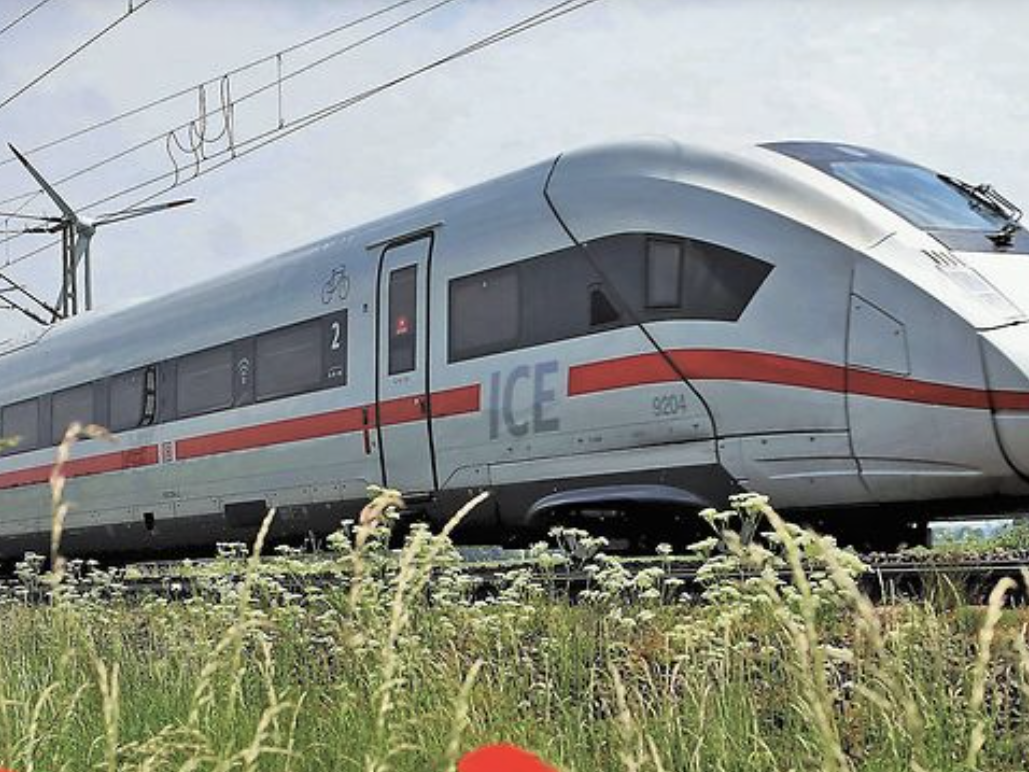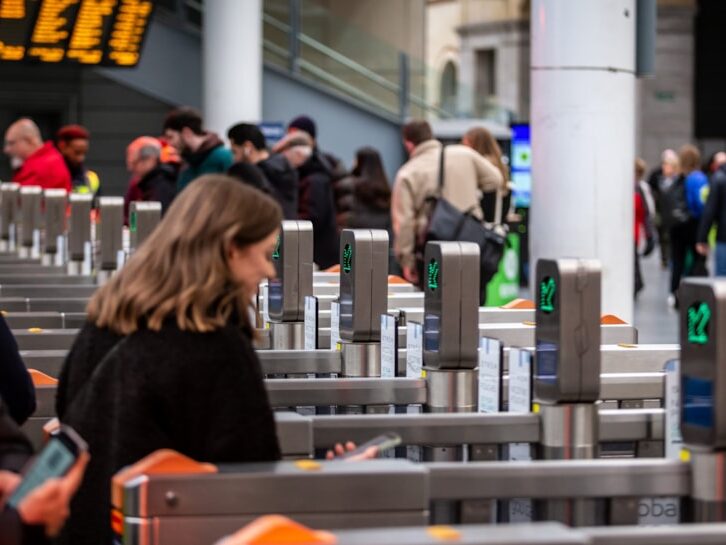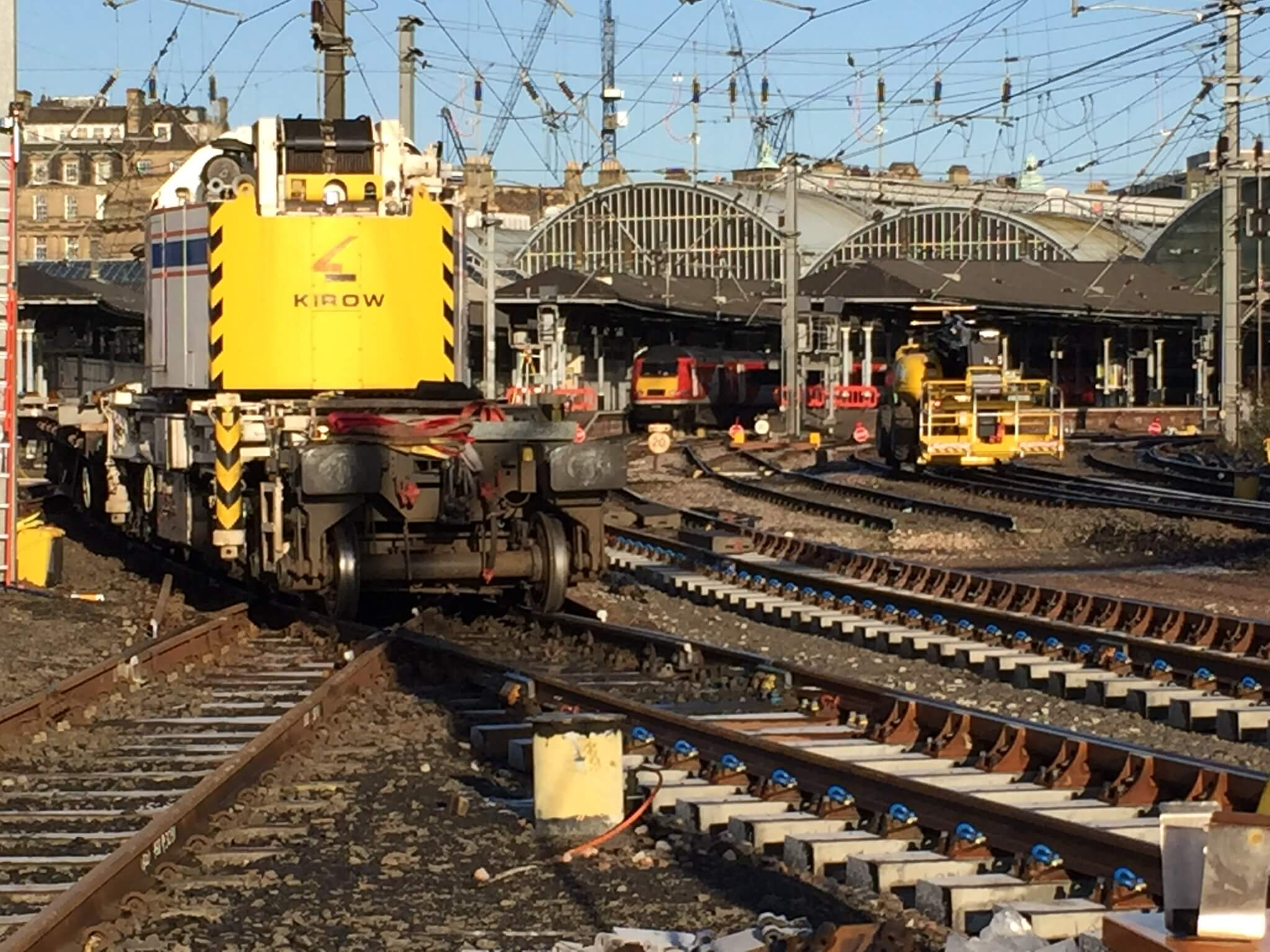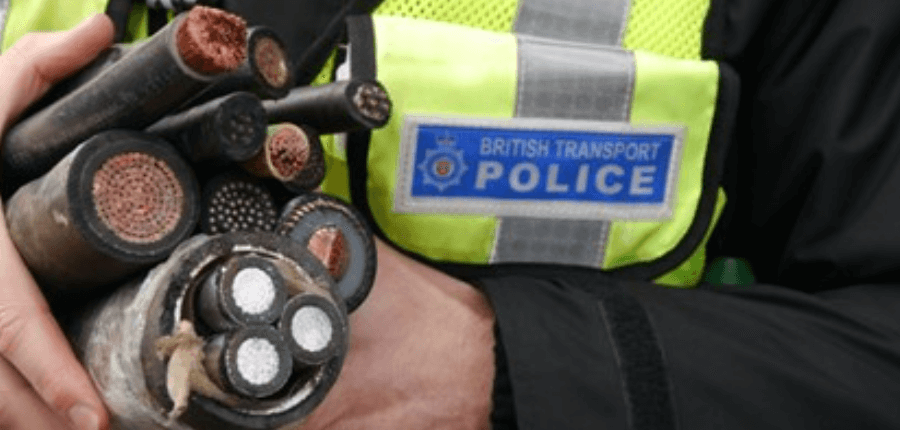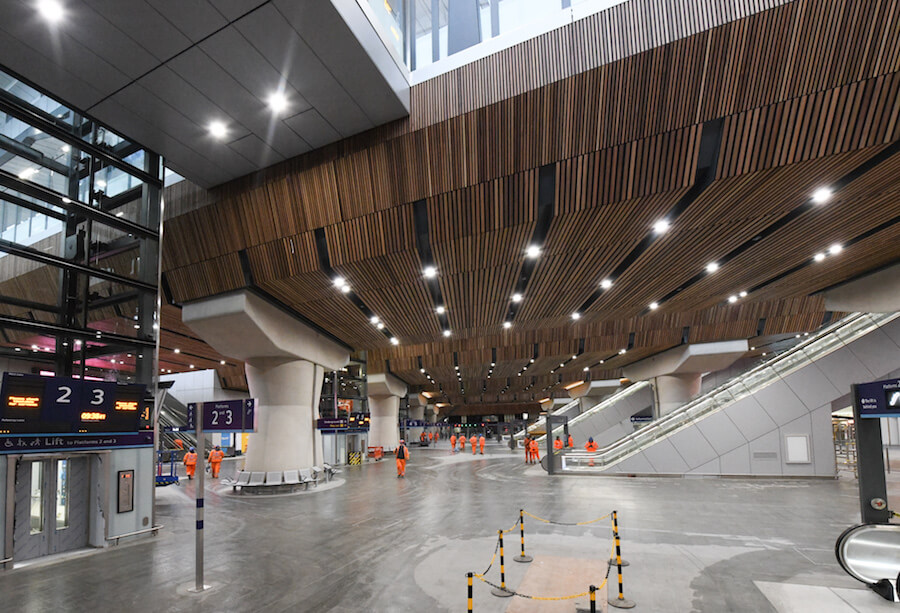‘Too big to fail?’ The last time the implications of this complex economic theory was appearing in the national media the world was in the midst of the banking crisis of 2008; the idea that any organisation was so large and powerful that it was impossible for it to collapse was superseded by a bitter realisation that for many organisations, spreading themselves too thinly increased the risk of collapse along with the size of the hole in an industry after they do disappear from the market.
In the context of The Great Recession, the collapse of one British construction firm seems much less significant, but, the appointment of an official receiver to liquidate the construction and support services firm Carillion on 15 January is also a global event.
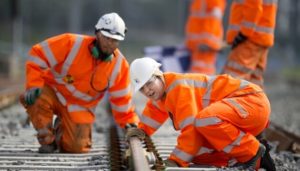
The Impact on Rail?
In addition to its commitments in the UK, which did constitute half of its business, Carrilion was involved in numerous joint ventures across the globe from Spain to the USA. Eiphage, one of its partners on the joint venture for HS2, is based in France. The share prices of several companies in different countries with which it was in partnership have already seen a sharp drop in value. The question of how this collapse occurred, however, and the responsibilities of other parties in permitting this situation is an issue for governments which awarded so many large contracts for public works to the company, even after it had started to issue profit warnings and alarm bells were ringing in the financial and industry press across the globe.
The initial coverage of the collapse, however, has largely focussed on the future of the rail projects which Carillion was working on. Of all its commitments, HS2 has probably attracted most attention from media both in the UK and abroad. The completion of Crossrail is also likely to be affected by a change of tender. Other aspects of the rail industry in the UK and, potentially in other countries, are likely to suffer from the collapse of Carillion, including the finances of the companies which will have to increase their share of costs to cover the withdrawal of one of their partners. The immediate concern, however, for most people after the liquidation of Carillion was the devastating effect on employees who have lost their jobs at very short notice; as soon as a company enters liquidation the lights are indeed switched off.
Contingency Plans
In light of this it is fortunate that many of Carillion’s contracts are for the state which must be completed, and so other companies will have to expand their workforce; the specialist skills of many employees in rail construction is also hopeful. Andrew Tomlinson of Cognitive Publishing Ltd, which advises decision makers in the public sector, including rail, told Railway-News that
‘although tragic the focus for the industry should be the contingency plans within the Joint Ventures that Carillon are part of; companies like Kier need absorb the work and workforce.’
One of the conditions for winning the contract for HS2 was that all partners – Carillion, Eiphage and Kier – were required to guarantee the ability to assume the workload of any partner which was unable to continue on the project. It seems doubtful that anyone genuinely imagined any one of these companies in the situation that we have now, but on Tuesday, the day after the collapse, Haydn Mursell, CEO of Kier stated that
‘the transfer of employees from Carillion to it and other smaller contractors is definitely an option.’
Other companies in joint ventures with Carillion are also set to share the costs of replacing its contribution to the project. A spokesman for the Railway Industry Association welcomed these assurances from the private sector and the government and said that it was confident that the industry in the UK
‘is highly dynamic and will come together to ensure these projects are delivered.’
Nevertheless, the prognosis for this situation includes negative outcomes. The financial profile of these companies which are increasing their costs is also a potential consequence of the rapid restructuring of these projects. It is plausible that Eiphage’s work in France and its contributions to the economy there will be affected by the increase of costs in the UK.
A Change in Contractors
For the rail industry as a whole, the exit of Carillion from the market in the UK and other countries will have a large impact on both the industry and the infrastructure supported by it. The contingency plans noted by Tomlinson should ensure the future of these projects, especially as Crossrail is nearing completion, but the schedule of works will surely be affected by the delays caused by one of the companies going into liquidation. In addition to these marquees projects, Carillion was also involved in many smaller contracts for Network Rail, including the upgrading of track between London and Corby. In a statement sent to Railway-News Network Rail sought to issue reassurances about their service:
‘Carillion’s work for Network Rail continues for the time being as Network Rail works with the official receiver and special manager to ensure the continuity of its project work. Passengers can be reassured that their services will be running as normal today as Carillion’s work for Network Rail does not involve the day-to-day running of the railway.’
The consequences of the change in contractors, including the agreement of new terms, and delays to the schedule of work on the many improvements to the network which Carillion was involved in will surely become more obvious as the dust starts to settle on the initial impact of it. The effect of its absence on the future of construction in rail is also a major question for the industry; on 16 January, Transport for the North announced a 30-year plan for transformations to rail in the north of England. The Department for Transport in the British Government has also prioritised developments in rail, including construction of the East-West Rail Link across the south of the country. The rail industry in the UK might be dynamic, but it will have to change shape to fill the hole created by the collapse of Carillion. In the long-term it is possible that smaller contractors around the world, who would never have competed effectively against international behemoths, will have more opportunities to win work.
The Difficulties of Carillion Were Not Unknown
In addition to the future, however, there are also questions regarding the past. The collapse of Carillion was a shock, but not a surprise; the final attempts at a rescue plan before the banks refused any further assistance happened in a rush, but the company issued 3 increasingly severe profit warnings between July and December 2017. The overlap between these warnings and escalating concern for its future and the award of major contracts in the UK rail network surely require reflection on the diligence of the government of the country in which it is registered.
In July 2017, Chris Grayling, the British Secretary of State for Transport had to publicly defend his decision to award the contract for HS2 to the Carillion; in November, when it won the contract from Network Rail to upgrade the track between London and Corby it was described as ‘troubled’ after enduring a ‘torrid’ financial year. If a company is losing money naturally it needs to increase income by winning new contracts, but the potential returns on these jobs were obviously insufficient to offset the immediate cost of these works and its debts in the UK and other countries.
The financial affairs of Carillion were so dismal that, although it was reported to have put administrators at EY on standby, it was not even a candidate for administration before it went into liquidation. The difficulties of Carillion were not unknown and whilst it is obviously entitled to bid for contracts, the fact that even after its viability had become an open question, its suitability did not apparently concern the people, including the government, which awarded them is unsettling. This approach implies an attitude that its situation was not taken seriously because it was so big that failure was not a real risk; insolvency is always a risk, and by November it was surely at least a potential reality.
The relationship between governments and private enterprises is complex and, aside from political ideology, the risks and rewards of it depends on the economic and industrial landscape of specific countries. Nevertheless, after the global reaction to the collapse of Carillion we can say that however capable a contractor is the approach of decision makers towards companies which are obviously in financial difficulties must be reconsidered.

















